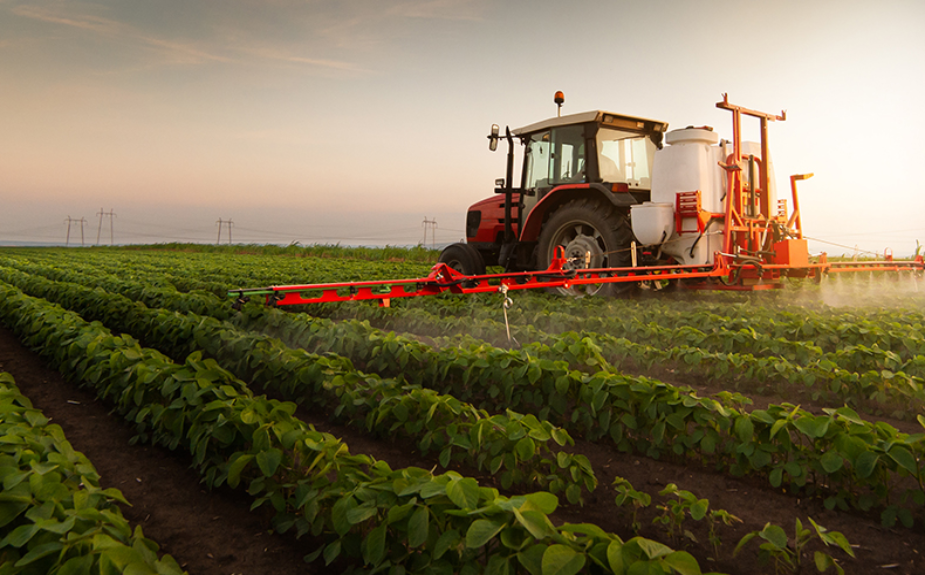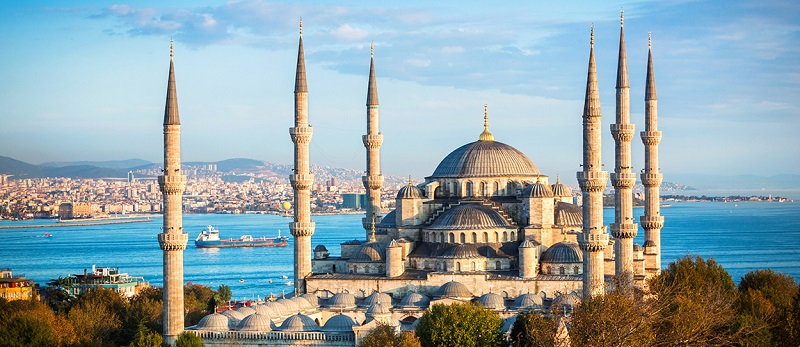Thursday January 23, 2025
- ALL NEWS
- SMALL & MEDIUM ENTERPRISES (SME)
- INTERNATIONAL TRADE
-
REGIONS
-
NON-REGIONAL
Search

Agricultural production has an essential importance for Turkey as a developing economy. Turkey started following a liberal economic development model after 1984, and agricultural production was the resource for generating the necessary capital stock. However, the Turkish government preferred populist agricultural production support policies, and that has created an inefficient agriculture industry with low productivity. A large population was involved in agricultural production. The financial support provided for agricultural production could not produce the desired results for the country. After the negotiations started with the EU to be a member, the Turkish government has made some deals regarding agricultural production in Turkey. Turkey has had one of the most significant agricultural productions among the EU member states. The deal with the EU is about transforming the labor force involved in agricultural production into relatively more productive workers and increasing the productivity of the Turkish agriculture industry.
The massive industrialization after 1984 caused young people to migrate from the rural areas to the city centers in Turkey, and the average age of people staying in their villages has increased dramatically. In other words, the more productive people have been transformed into industry workers while labor productivity has declined in agricultural production. Industrialization was seen as an essential contribution to the economic development efforts of the country. At the same time, the rapid process brought an unplanned transformation of the labor force and the vast use of natural resources. Turkey has had this experience, and, following that, the EU membership process started in the 2000s. The industrial and agricultural standards requested by the EU forced Turkey to make some dramatic changes to its agricultural production support policies. The EU management sees these standards as a part of planning the agricultural production in the EU member states. However, would these standards transform the Turkish agriculture industry into a relatively more productive sector contributing to the economic development country, or not?
 Reforming the agricultural production in Turkey by using the EU standards has meant reducing the financial support from the central budget to the farmers. The farmers in Turkey have been used to receiving high levels of support from the governments, and receiving less support meant a higher cost of production. At the same time, the Turkish producers prefer using their traditional ways of planning their production instead of getting consultancy services from agricultural production scientists and engineers. This situation has created an opportunity for agricultural input providing companies including fertilizer and pesticide suppliers to give consultancy to the farmers in Turkey. These companies are still using this opportunity as a part of their marketing strategy. In other words, they could sell more and more, and the farmers have used more unnecessary chemicals and pesticides facing a costly production due to the input cost with an increasing trend. Subsequently, the farmers using their ways of production with the consultancy from the input suppliers, and reducing the financial support from the government has decreased the profits of the Turkish farmers. The unprofessional and nonscientific ways of management preferences have made life very difficult for them economically. Consequently, many Turkish farmers left their fields and moved to the city centers to be workers in the industrial production or service industry.
Reforming the agricultural production in Turkey by using the EU standards has meant reducing the financial support from the central budget to the farmers. The farmers in Turkey have been used to receiving high levels of support from the governments, and receiving less support meant a higher cost of production. At the same time, the Turkish producers prefer using their traditional ways of planning their production instead of getting consultancy services from agricultural production scientists and engineers. This situation has created an opportunity for agricultural input providing companies including fertilizer and pesticide suppliers to give consultancy to the farmers in Turkey. These companies are still using this opportunity as a part of their marketing strategy. In other words, they could sell more and more, and the farmers have used more unnecessary chemicals and pesticides facing a costly production due to the input cost with an increasing trend. Subsequently, the farmers using their ways of production with the consultancy from the input suppliers, and reducing the financial support from the government has decreased the profits of the Turkish farmers. The unprofessional and nonscientific ways of management preferences have made life very difficult for them economically. Consequently, many Turkish farmers left their fields and moved to the city centers to be workers in the industrial production or service industry.
Some companies, active in non-agricultural industries, have purchased the lands from the traditional farmers. These companies have two objectives. Firstly, they expect an increase in the value of land, and, secondly, they hire some professionals to create efficiently working profitable investments in farming. However, this situation creates an oligopolist structure in food production, and a food price increase occurs. The Turkish government has implemented some policies to handle the increasing food prices issue by adjusting exports and imports of agricultural products. This policy has enabled the importers to bring agricultural products with relatively lower prices, and, have an essential advantage against the domestic products. That has caused a structural problem in the Turkish agriculture industry, and the local producers reduced their production capacities because of the reduced prices due to the cheaper imported products. Nowadays, the Turkish agriculture industry has lost large production capacity, and the food industry is highly dependent on imports.
Turkey has to face the consequences of its fast industrialization, the wrong agricultural production policies, and the loss of the production capacity in agricultural production. Most recently, the coronavirus outbreak has shown us that the food industry and agricultural production are among the critical sectors for countries to feed their nations.
Learn More with Exports News
Exports News is your go-to place for the latest import/export information and news. Subscribe to our newsletter today!
No Comments
Add comment



We’re happy you are satisfied with Exports News. Please let us know if you need enything!
support@exportsnews.comWe’re sorry your experience was not satisfactory. Please let us know how we can improve your experience:
Please contact us with any questions or concerns: support@exportsnews.com


Your feedback has been received! If you have any other questions or concerns, please contact us at:


There aren't any comments yet. Be the first to comment!